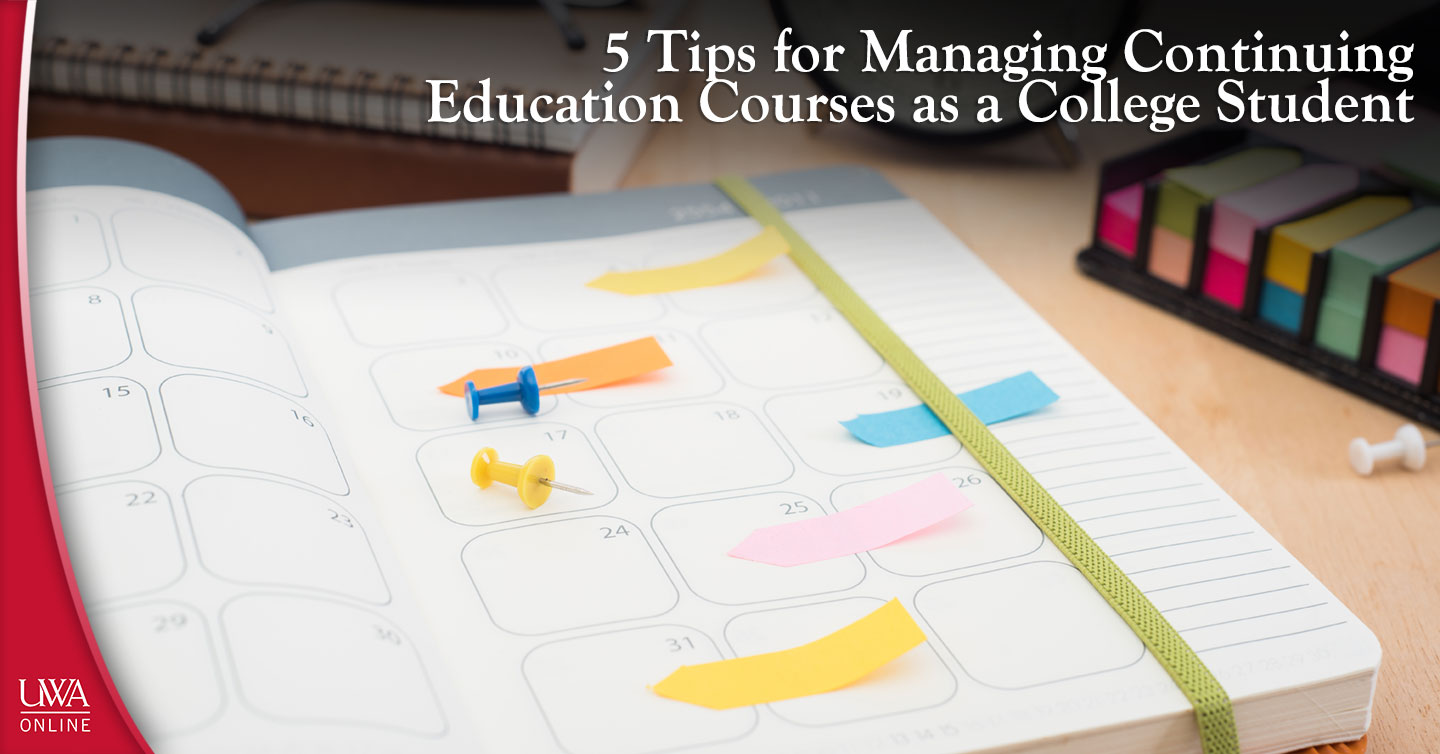
From juggling exams and projects to balancing your work and social life, being a college student can be stressful. Every decision, whether academic or personal, is one that can either positively or adversely affect the rest of your life. One choice that you may make as a college student is to enhance your resume and skill set by taking non-credit continuing education courses while also taking classes that will count toward your degree. Sound overwhelming? People do it every day, and you can, too, by learning what to keep in mind when managing continuing education courses as a college student.
- Choose your continuing ed courses wisely. When managing continuing education courses as a college student, you want to make sure that the non-credit continuing education courses you are taking are ones that will complement the credit courses you are already taking. Sure, if you are a health sciences major, and you have time to take a continuing education photography course for fun, then go for it. But if you are strictly seeking continuing education for the sake of making yourself marketable to potential employers, then you might want to opt for something more along the lines of kinesiology or exercise science, for example. When choosing your continuing education courses, you should also make sure you choose ones that make for a good balance between your degree courses and your non-credit courses. Neither should weigh you down in terms of time or ability.
- Create a quiet, clean and organized studying environment. Another important tip for managing continuing education courses as a college student involves cultivating a study and work environment that is conducive to learning. Many continuing education programs, like UWA Online, offer online-based courses that require a well-working computer and strong internet connection. If the campus library is crowded, you’ll want an alternative space to complete your online continuing education lessons, discussions, projects and exams without being disturbed. Pick out a space in your dorm or apartment that you can dedicate to maintaining an efficient working space.
- Prioritize your continuing education courses. When things get busy, you may feel that something has to give—and you may choose your non-credit courses over your for-credit ones. If that’s what you choose to do, then that is your prerogative. However, you should prioritize your continuing education courses on the same level as your degree courses if possible. After all, you did pay for them, so letting them fall by the wayside is not only a missed opportunity, but it is a waste of money.
- If it doesn’t help you, don’t do it. Don’t take continuing education courses just for the sake of taking them if doing so is not going to help you in the long run. Because they are non-credit courses, you will not necessarily have credit hours to show for them, but what you should have to show as a result of successfully completing them is an acquired skill, advanced knowledge or some other benefit. If the courses you are taking will not help you achieve any of these end results, then perhaps you should reconsider your decision to take them—especially while also working as a college student.
- Remember why you sought out continuing education. If you get discouraged, remind yourself why you sought out continuing education courses in the first place. Having career-specific courses and certifications on your resume can make the difference between you and your competition being hired for a position. Use this as a motivator when managing continuing education courses as a college student!
Getting a head start on continuing education while you are still a college student can help you secure a coveted position in your career field. To learn more about UWA Online’s course offerings, visit www.uwa.edu/ce!
Larry Weaver says:
Thanks for the suggestion to prioritize continuing education courses on the same level as a degree course. I would like to start doing some continuing education through a cle webcast. Having a clean and quiet environment for studying is also something I’ll have to figure out, because I think it could help me pay better attention in learning.
Roger Middleton says:
I liked that you had mentioned that when it comes to continuing your education it can be important to have a clean, organized, and quiet environment to make sure that you can work as efficiently as possible. My wife and I have been thinking about getting continuing education insurance just in case something happens and we need it but we weren’t sure what to do. If something does come up and we have to get some, we’ll be focusing on having a nice study situation to avoid any problems.